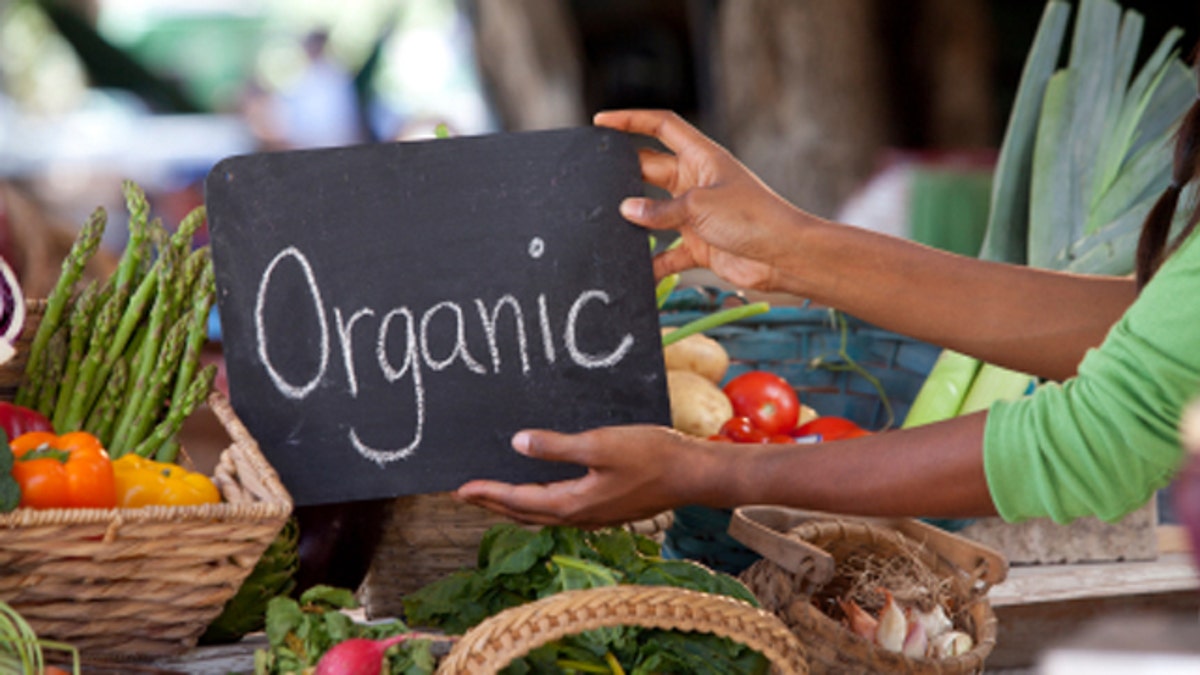
(iStock)
You are at the supermarket and can't decide whether to spring for the organic strawberries or buy your usual container of conventionally-grown. Here are some foods you should try to buy organic, and others that are fine to buy conventionally.
What is organic, anyway?
The United States Department of Agriculture (USDA) defines an organic food as one that is grown without the use of most conventional pesticides or petroleum or sewage sludge-based fertilizers. For animal products to be considered organic, the animals must have been raised on an organic operation, fed organic food and given outside access. They cannot be given any antibiotics or growth hormones.
The dirty dozen and the clean fifteen
According to the Environmental Working Group (EWG), eating conventionally-grown fruits and vegetables is better than not eating any produce, but you can still take an active role in reducing your consumption of heavily pesticide-contaminated food. Here are ten of EWG's "dirty dozen."
- Apples
- Celery
- Strawberries
- Peaches
- Spinach
- Nectarines (imported)
- Grapes (imported)
- Sweet bell peppers
- Potatoes
- Blueberries (domestic)
The USDA found pesticides on 98 percent of the 700-plus apple samples that were tested, according to EWG, advancing it to the top of the 2011 list. Celery has tested positive for 57 different pesticides, and those conventional strawberries you usually purchase may have as many as 13 different pesticides.
The EWG says that pesticides can be extremely toxic to both human health and the environment, and they have been linked to nervous system toxicity, cancer and hormone system disruption. The organization calculates that people who go with five servings of fruits and vegetables from the "clean 15" list rather than the "dirty dozen" can decrease their volume of pesticide consumption by 92 percent.
The EWG also identified some of the least pesticide-contaminated produce on a list that it dubbed the "clean 15." Here are ten of those 15.
- Onions
- Sweet Corn
- Pineapples
- Avocado
- Asparagus
- Sweet peas
- Mangoes
- Eggplant
- Cantaloupe (domestic)
- Kiwi
Beyond produce
What else should you buy organic? Milk, says De Los Rios
"Twelve different pesticides have been identified in many brands of conventional milk through what the cow was fed," she says, "and these pesticides are then transferred right to you upon drinking."
Another concern with conventional milk is that it may contain growth hormones and antibiotics, De Los Rios says.
"Farmers give their cows growth hormones to increase their milk production and antibiotics if they become ill," she says. "Since milk is still a staple in many family's diets, it is well worth the extra money to purchase the organic variety."
For meat, dairy and eggs, know that "natural" indicates that the product was minimally processed. This is not indicative of the farming practices. The "grass-fed" label is applied to animals who receive the bulk of their nutrients from grass, but does not necessarily mean there was a limited use of antibiotics, hormones or pesticides. Check out the USDA for more information on the National Organic Program and further label explanations.
